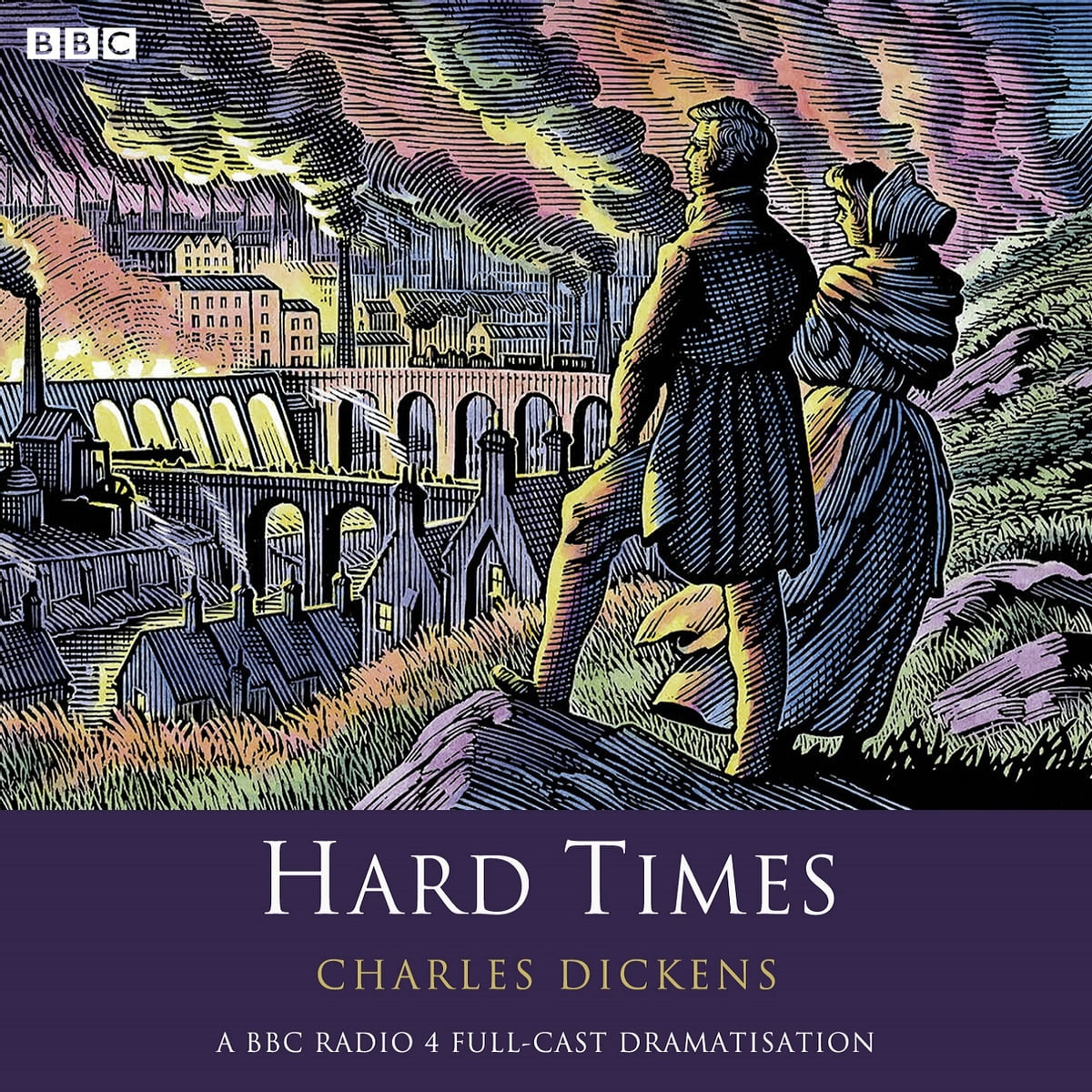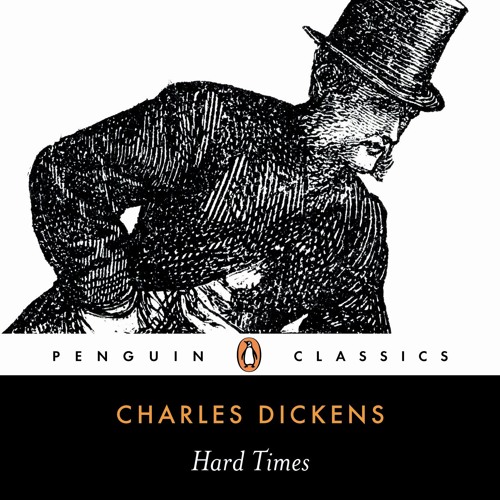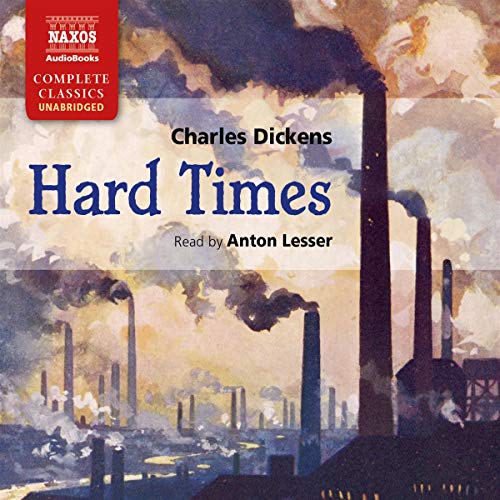Charles Dickens’ “Hard Times” audiobook provides a gripping portrayal of Victorian society. It explores industrialization’s impact on human lives.
“Hard Times” by Charles Dickens is a timeless classic that delves into the struggles of the industrial age. The audiobook captures the essence of Victorian England, highlighting the stark contrasts between wealth and poverty. Dickens masterfully portrays characters like Thomas Gradgrind and Josiah Bounderby, whose lives are governed by utilitarian principles.
The narrative critiques the era’s rigid educational and social systems, emphasizing the need for compassion and imagination. Listening to this audiobook allows you to experience Dickens’ vivid storytelling and social commentary. It’s a must-listen for anyone interested in literature, history, or social justice.
Introduction To ‘hard Times’
Charles Dickens’ novel ‘Hard Times’ is a gripping story set in an industrial town. The audiobook brings the characters and themes to life. This introduction will help you understand the background and context of this classic tale.
The Life Of Charles Dickens
Charles Dickens was born in 1812 in England. He became one of the most famous writers in history. His works are known for their vivid characters and social commentary.
Dickens had a difficult childhood. His family faced financial troubles. These experiences influenced his writing. He started his career as a writer in his early twenties.
Dickens wrote many famous novels. Some include ‘Oliver Twist’, ‘A Christmas Carol’, and ‘Great Expectations’. He used his stories to highlight social issues and injustices.
Overview Of ‘hard Times’
‘Hard Times’ was published in 1854. It is set in the fictional town of Coketown. The story explores the lives of the townspeople and their struggles.
The novel focuses on three main themes: industrialization, education, and social class. Dickens critiques the harsh realities of factory life. He also questions the education system of his time.
The main characters include Thomas Gradgrind, a strict schoolmaster, and Josiah Bounderby, a wealthy factory owner. Their lives intersect with those of the working-class people in Coketown.
Listening to the ‘Hard Times’ audiobook will immerse you in Dickens’ vivid world. The narration adds depth to the characters and story.

Setting The Scene: Industrial Coketown
Charles Dickens’ Hard Times offers a vivid portrayal of Coketown. This fictional city reflects the harsh realities of industrial life. Through the audiobook, listeners can experience the grim atmosphere of the Victorian era.
The Impact Of Industrialization
Industrialization transformed cities into bustling hubs. Factories dominated the landscape. This rapid change brought both progress and problems. Workers faced long hours and poor conditions.
- Polluted air
- Crowded living spaces
- Exploited labor
Children and adults alike worked tirelessly. The factory owners grew rich, while workers suffered. Dickens highlights these stark contrasts.
Coketown: A Microcosm Of Victorian England
Coketown symbolizes many industrial cities of the time. It serves as a microcosm of Victorian England. The city is described with vivid, oppressive imagery.
| Aspect | Description |
|---|---|
| Architecture | Brick buildings, smoking chimneys |
| Streets | Dark, dirty, and crowded |
| Atmosphere | Gloomy and oppressive |
In Coketown, social classes are distinct. The rich and poor live starkly different lives. Dickens uses Coketown to criticize industrial society.
Listeners of the audiobook will find themselves immersed in this world. The vivid descriptions make Coketown come alive.
Experience the reality of Victorian England through Dickens’ powerful narrative.
Main Characters And Their Journeys
Charles Dickens’ Hard Times is a novel rich with diverse characters. Each one has a unique path. Their stories intertwine, creating a complex narrative. In this audiobook, listeners will follow their journeys closely.
Thomas Gradgrind And His Philosophy
Thomas Gradgrind is a stern man. He values facts over feelings. His philosophy is all about practicality. Gradgrind runs a school based on these principles. He teaches children only facts. Emotions are not allowed.
His own children suffer because of this. They grow up without emotional intelligence. Gradgrind’s philosophy impacts everyone around him. It creates a cold, hard world. But over time, he begins to see the flaws in his ways.
Louisa Gradgrind’s Struggle For Emotion
Louisa Gradgrind is Thomas’s daughter. She grows up under his strict rules. Louisa learns to hide her feelings. She marries a man she doesn’t love. This causes her great pain.
Louisa’s journey is about finding her emotions. She meets people who help her feel again. Louisa’s struggle is a key part of the story. Her experiences show the importance of emotion in life.
Stephen Blackpool’s Tragic Life
Stephen Blackpool is a factory worker. His life is full of hardship. Stephen is honest and kind. But he faces many challenges.
Stephen is trapped in a loveless marriage. He cannot divorce his wife. He loves another woman, Rachael. But they cannot be together.
Stephen’s life is a series of tragedies. He is accused of a crime he didn’t commit. His story highlights the struggles of the working class. Stephen’s journey is a sad but important part of the novel.
Themes Explored In ‘hard Times’
Charles Dickens’ ‘Hard Times’ is rich in themes. Each theme reveals the social and economic issues of the Victorian era. Exploring these themes offers a deeper understanding of the novel.
Fact Vs. Fancy
In ‘Hard Times’, Dickens contrasts fact with fancy. Facts represent the rigid, emotionless approach to life. Fancy represents imagination and emotions. Mr. Gradgrind embodies the fact-based worldview. He believes in strict adherence to facts. His children suffer from this lack of imagination. Sissy Jupe, on the other hand, represents the world of fancy. She values emotions and creativity. This theme highlights the need for a balanced life.
The Consequences Of Industrialization
Dickens also explores the consequences of industrialization. The city of Coketown is a symbol of industrial life. It is filled with smoke and grime. Workers toil in factories under harsh conditions. They live in poor and crowded areas. The novel portrays the dehumanizing effects of industrialization. It calls for better working conditions and empathy towards workers.
| Aspect | Description |
|---|---|
| Coketown | Symbolizes industrial life, filled with smoke and grime. |
| Workers | Toil under harsh conditions, live in poor areas. |
| Industrialization | Leads to dehumanizing effects, calls for empathy. |
Class Conflict And Social Justice
The novel addresses class conflict and social justice. The rich exploit the poor. Characters like Stephen Blackpool and Rachael represent the working class. They face numerous hardships and injustices. The upper class, represented by characters like Mr. Bounderby, is often indifferent and arrogant. Dickens advocates for social justice and fair treatment of all classes.
- Stephen Blackpool: Represents the struggles of the working class.
- Mr. Bounderby: Embodies the arrogance of the upper class.
- Social Justice: Dickens calls for fair treatment and empathy.
Narrative Techniques And Literary Devices
Charles Dickens’s Hard Times stands out due to its unique narrative techniques and literary devices. These elements not only enrich the story but also engage listeners deeply. Let’s explore some of these remarkable techniques.
Dickens’s Use Of Satire
Dickens uses satire to critique society. He targets the industrial revolution and its impact on people. The characters often represent societal flaws. Mr. Gradgrind, for example, symbolizes the obsession with facts. His rigid views highlight the absurdity of neglecting emotions.
The satire in Hard Times is sharp and clear. It exposes the harsh realities of the time. Dickens’s humor makes the criticism more impactful. This technique keeps the listeners engaged and thoughtful.
Symbolism In ‘hard Times’
Symbolism plays a significant role in Hard Times. The characters and settings symbolize broader concepts. Coketown, the fictional city, symbolizes industrial society. It is grim, polluted, and monotonous.
Louisa Gradgrind’s character symbolizes the struggle between emotion and reason. Her internal conflict reflects the larger societal issues. The circus, in contrast, symbolizes freedom and imagination. It offers a stark contrast to the rigid world of Mr. Gradgrind.
The Role Of Narration
The narration in Hard Times is crucial. Dickens employs an omniscient narrator. This narrator knows everything about the characters and events. The omniscient point of view allows deep insight into the characters’ thoughts and feelings.
The narrator often addresses the audience directly. This creates a conversational tone. It makes the story more engaging. The narration helps to build a strong connection with the listeners.
Summary Table of Key Techniques:
| Technique | Description |
|---|---|
| Satire | Critique of society using humor |
| Symbolism | Use of characters and settings to represent ideas |
| Narration | Omniscient narrator providing deep insights |

Critical Reception And Interpretations
Charles Dickens’ Hard Times is a critical work that has sparked diverse interpretations. It continues to captivate audiences, especially in audiobook format. This section delves into the critical reception and various interpretations of the novel.
Contemporary Reviews Of ‘hard Times’
At the time of its release, Hard Times received mixed reviews. Some appreciated its social critique, while others found it overly moralistic.
| Reviewer | Opinion |
|---|---|
| The Times | Praised the novel’s social message. |
| The Examiner | Criticized its lack of humor. |
| Fraser’s Magazine | Found it too didactic. |
Modern Criticism And Analysis
Modern critics have re-evaluated Hard Times through various lenses. They focus on its themes and narrative techniques.
- Social Critique: Examines the impact of industrialization.
- Character Analysis: Studies complex characters like Gradgrind and Bounderby.
- Feminist Perspective: Looks at the roles of women in the novel.
Today’s readers appreciate the novel for its rich, layered storytelling. The audiobook format brings these elements to life in a unique way.
Adaptations And Influence
Charles Dickens’ “Hard Times” is a timeless novel. Its themes and characters stay relevant today. This section explores the novel’s adaptations and influence. Discover how “Hard Times” has impacted film, TV, and literature.
‘hard Times’ In Film And Television
“Hard Times” has inspired many film and TV adaptations. Each brings the story to new audiences. Some notable adaptations include:
- 1965 BBC Television Series: A faithful rendition of the novel.
- 1994 TV Movie: A modern take on Dickens’ classic.
- 2000 BBC Radio Drama: An audio adaptation capturing the novel’s essence.
These adaptations highlight the story’s enduring appeal. They help keep Dickens’ work alive for new generations.
The Novel’s Impact On Future Literature
“Hard Times” has influenced many writers. Its themes of social justice and industrialization resonate deeply. Some authors who felt this influence include:
- George Orwell: His works reflect similar social critiques.
- John Steinbeck: He explores the struggles of the working class.
- Margaret Atwood: Her dystopian novels echo Dickens’ concerns.
“Hard Times” continues to inspire. Its impact on literature remains strong. Future writers will keep drawing from its rich themes.
Conclusion: The Enduring Legacy Of ‘hard Times’
Charles Dickens’ ‘Hard Times’ is a timeless masterpiece. The audiobook version brings its powerful narrative to life. The story’s themes remain relevant today, offering listeners a profound experience. As we explore the legacy of ‘Hard Times’, we’ll see its lasting impact on literature and society.
Lessons For The Modern World
‘Hard Times’ teaches valuable life lessons. It highlights the dangers of industrialization and greed. The story reminds us to value humanity over profit. Each character’s journey offers insights into compassion and empathy. These lessons are crucial in today’s fast-paced world.
The novel also emphasizes the importance of education. It criticizes rote learning and promotes critical thinking. This message is still relevant in modern educational systems. We need to nurture creativity and curiosity in young minds.
Why ‘hard Times’ Remains Relevant Today
‘Hard Times’ remains relevant due to its timeless themes. Issues like social injustice and inequality are still prevalent. The novel’s depiction of class struggle resonates with contemporary audiences. It encourages us to reflect on our own society.
The audiobook format makes ‘Hard Times’ accessible to a new generation. Listening to the story can be a powerful experience. It allows listeners to connect with the characters on a deeper level. The themes and lessons continue to inspire and provoke thought.
| Theme | Modern Relevance |
|---|---|
| Industrialization | Modern corporate greed |
| Education | Need for critical thinking |
| Social Injustice | Ongoing inequality |
In summary, ‘Hard Times’ by Charles Dickens continues to be a powerful narrative. Its themes and lessons are as relevant today as they were in the past. The audiobook version brings these elements to life, making it a must-listen for modern audiences.

Conclusion
Listening to “Hard Times” by Charles Dickens as an audiobook provides a unique experience. It brings characters to life. Audiobooks offer convenience and immersion, perfect for busy schedules. Don’t miss exploring the social themes Dickens masterfully presents. Enjoy the timeless classic “Hard Times” in a whole new way with an audiobook.



